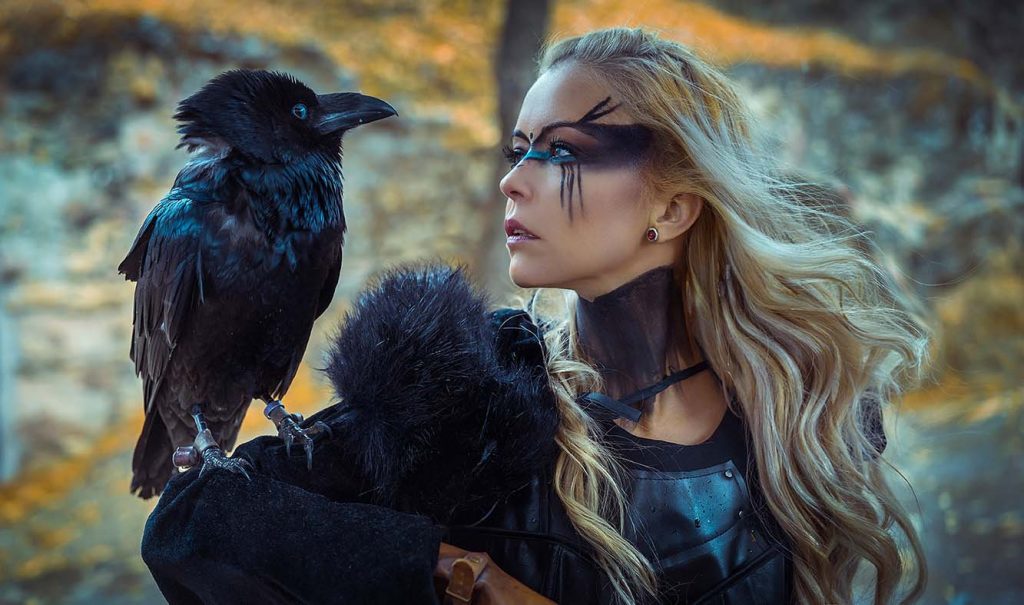The Vikings were known to be fierce conquerors and warriors, but what little is known about them is their religion and beliefs. While they were primarily known for their conquests and battles, there is so much more to them than meets the eye. Their religion and beliefs are fascinating, and it reveals how interconnected everything was back then. Understanding their religion is essential in comprehending what drove the Vikings and what made them the formidable people that they were.

The Vikings practiced a polytheistic religion, which means they had many gods. These gods and goddesses were believed to control different aspects of life, such as love, war, farming, and knowledge. The religion was rooted in mythology, and the sagas describe the gods and goddesses who were revered by the Vikings.
The main Viking Gods
The Vikings were a seafaring people from Scandinavia who raided and traded throughout Europe from the late 8th to the late 11th century. They had a rich mythology with numerous gods and goddesses who were believed to control different aspects of the natural world and human life. Here are some of the main Viking gods:
- Odin: The Allfather and god of wisdom, war, and death. He was the chief of the gods and had two ravens, Huginn and Muninn, who flew around the world and brought him information.
- Thor: The god of thunder, war, and strength. He was known for his powerful hammer, Mjölnir, which he used to defeat his enemies.
- Freyja: The goddess of love, fertility, and war. She was associated with magic and prophecy and was known for her beauty and wisdom.
- Loki: The god of mischief and trickery. He was a shape-shifter who caused trouble for the other gods and sometimes helped them when it suited him.
- Hel: The goddess of death and the underworld. She ruled over the souls of those who died of old age or illness.
- Tyr: The god of law and justice. He was known for his bravery and was often invoked by warriors before battle.
- Heimdall: The god of light and the guardian of the Bifrost, the rainbow bridge that connected Asgard (the realm of the gods) to Midgard (the world of humans).
- Baldr: The god of light and purity. He was the son of Odin and was known for his kindness and beauty.
These gods were worshipped through offerings and sacrifices, such as animals or even humans in some cases. The Vikings believed that if they honored the gods and lived virtuous lives, they would be rewarded in the afterlife in Valhalla, the great hall of Odin where the bravest warriors went after death.
Today, Viking mythology continues to captivate people’s imaginations and inspire works of art and literature. The gods and goddesses of the Vikings remain a fascinating glimpse into the beliefs and values of this ancient civilization.
Valhalla
One of the most popular aspects of the Viking religion was their belief in Valhalla, a coveted afterlife. Valhalla was a palace where fallen warriors who died bravely in battle could ascend to spend eternity feasting and fighting their way through the days. Norse mythology also had Hel, a realm of the afterlife where dishonourable Vikings and those who died of old age or illness would go.
The Vikings also believed in the power of the runes, which were symbols that conveyed mysterious messages. The runes had different uses, such as for healing, for cursing enemies, and for guidance. They believed that the runes could influence destiny and fate, and they performed rituals and cast spells using the runes.
In addition to their religion, the Vikings also had unique burial rituals. They believed that a person’s spirit could only rest peacefully in the afterlife if his or her body was buried correctly. The Vikings were known to bury their dead with their belongings and valuables, as they believed that a person’s possessions could follow him or her into the afterlife.
Conclusion:
In conclusion, the Vikings’ religion and beliefs were an integral part of their culture and daily life. Although generally viewed as a warlike people, their beliefs had a profound influence on the Vikings’ lives and values, and it must be understood to get a true appreciation of this ancient culture. It is a fascinating world of gods and goddesses, runes and rituals, life, and honour at the disposition of their gods. By looking at their religion and beliefs, we can comprehend the Vikings as they saw themselves and, in turn, better appreciate them as a people.